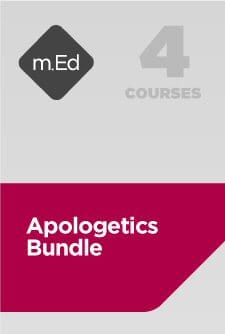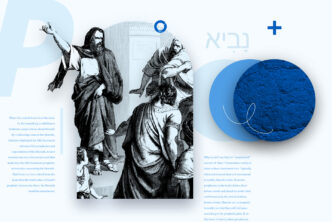Apologetics can be narrowly defined as “a defense of the faith.”
More broadly, however, apologetics involves communicating the truth of Scripture to those around you. This will, at times, involve defending the claims of the Bible, but it may also involve showing people how the gospel addresses their needs or the needs of a culture at large.
Mobile Ed’s four-course Apologetics Bundle gives you an in-depth look at several different approaches to apologetics. It will help you to more effectively articulate the truth of the gospel in the specific context in which you live.
Covenantal apologetics
In AP120 Introducing Covenantal Apologetics I: Foundations and AP121 Introducing Covenantal Apologetics II: Applications, Dr. K. Scott Oliphint begins by showing how God defends his own glory throughout the Bible. Dr. Oliphint lays the biblical and theological foundation for covenantal apologetics by looking at important doctrines like the doctrine of God, the doctrine of man, the doctrine of Scripture, and the doctrine of salvation. After establishing this foundation, he discusses the topics of common grace, worldview, and the problem of evil, with an emphasis on how they relate to the defense of the Christian faith.
Apologetics in the postmodern context
Dr. Jim Belcher looks at the importance of contextualization in apologetics in his course AP211 Show and Tell: Apologetics in the Postmodern Context. He examines the nature of our postmodern society, including some reasons for the rise of postmodernism and the ways that the moral relativism of postmodernism has influenced our culture. In discussing contextualization, Dr. Belcher warns of both undercontextualizing the gospel, which can lessen its relevance, and overcontextualizing the gospel, which can lead to a watering down of the faith.
Apologetics in an urban context
In AP221 Apologetics in an Urban Context, Dr. Carl Ellis uses sociology, anthropology, and history as springboards for looking at apologetics, specifically applying them to the African American experience. He begins by exploring different worldviews and models of apologetics. Dr. Ellis then moves into a detailed discussion of the sociology, history, and theology of African Americans and looks at how the gospel can address the core concerns of African Americans. He concludes by noting that in order to fulfill the Great Commission, “it is imperative that we begin to apply the word of God to all areas of life and in all cultural contexts.”
These four courses will provide you with a variety of approaches to apologetics. You’ll gain a better understanding of the purpose of apologetics and learn how to better practice apologetics.





